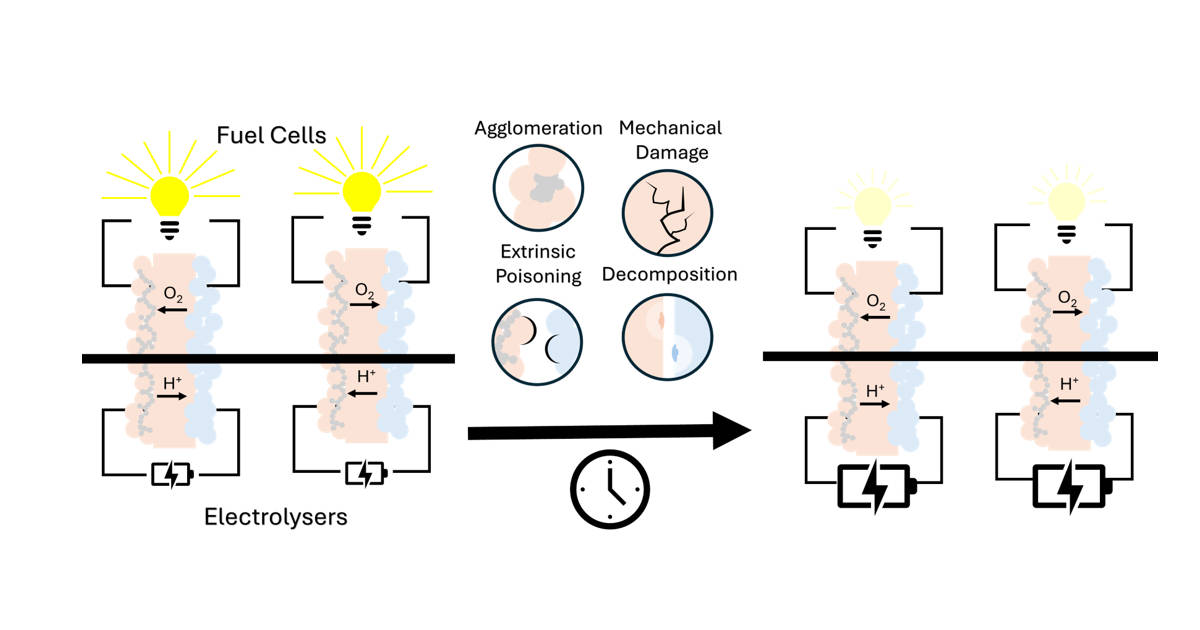- 3.2Impact Factor
- 6.4CiteScore
- 16 daysTime to First Decision
Advanced Materials for Solid Oxide Cells: Performance and Degradation Modeling
This special issue belongs to the section “Energy Materials“.
Special Issue Information
Dear Colleagues,
Solid oxide cells (SOCs), encompassing both fuel cells (SOFCs) and electrolysis cells (SOECs), are key technologies in the transition to sustainable energy systems, offering high efficiency, fuel flexibility, and reversible operation. However, their widespread deployment is hindered by complex performance-limiting mechanisms and long-term degradation under high-temperature operation. Accurate modeling and prediction of SOC performance and degradation are essential to improving their reliability, longevity, and integration into real-world applications.
This Special Issue, titled “Advanced Materials for Solid Oxide Cells: Performance and Degradation Modeling”, aims to gather cutting-edge research focused on the modeling, simulation, and prediction of SOC behavior. We welcome contributions that use multi-physics and multi-scale modeling approaches to examine degradation mechanisms, predict lifetime prediction, and optimize performance under realistic operating conditions. Topics of interest include, but are not limited to, the following: electrochemical modeling of SOC components; thermal and mechanical stress analysis; degradation modeling of electrodes and electrolytes; modeling of redox cycling, poisoning, and thermal aging; and data-driven or machine learning approaches to performance forecasting. We are interested in research papers but are also keenly interested in perspectives that will help guide future work in these areas.
Dr. Omid Babaie Rizvandi
Dr. Anna Staerz
Guest Editors
Manuscript Submission Information
Manuscripts should be submitted online at www.mdpi.com by registering and logging in to this website. Once you are registered, click here to go to the submission form. Manuscripts can be submitted until the deadline. All submissions that pass pre-check are peer-reviewed. Accepted papers will be published continuously in the journal (as soon as accepted) and will be listed together on the special issue website. Research articles, review articles as well as short communications are invited. For planned papers, a title and short abstract (about 250 words) can be sent to the Editorial Office for assessment.
Submitted manuscripts should not have been published previously, nor be under consideration for publication elsewhere (except conference proceedings papers). All manuscripts are thoroughly refereed through a single-blind peer-review process. A guide for authors and other relevant information for submission of manuscripts is available on the Instructions for Authors page. Materials is an international peer-reviewed open access semimonthly journal published by MDPI.
Please visit the Instructions for Authors page before submitting a manuscript. The Article Processing Charge (APC) for publication in this open access journal is 2600 CHF (Swiss Francs). Submitted papers should be well formatted and use good English. Authors may use MDPI's English editing service prior to publication or during author revisions.
Keywords
- solid oxide cells (SOCs)
- performance modeling
- degradation mechanisms
- electrochemical modeling
- multi-physics simulation multi-physics
- lifetime prediction
- thermo-mechanical stress
- redox cycling
- electrode degradation
- data-driven modeling

Benefits of Publishing in a Special Issue
- Ease of navigation: Grouping papers by topic helps scholars navigate broad scope journals more efficiently.
- Greater discoverability: Special Issues support the reach and impact of scientific research. Articles in Special Issues are more discoverable and cited more frequently.
- Expansion of research network: Special Issues facilitate connections among authors, fostering scientific collaborations.
- External promotion: Articles in Special Issues are often promoted through the journal's social media, increasing their visibility.
- e-Book format: Special Issues with more than 10 articles can be published as dedicated e-books, ensuring wide and rapid dissemination.

